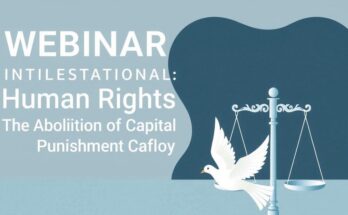In a controversial incident during a session of the United Nations Human Rights Council (UNHRC), a video statement by Anne Bayefsky from the Touro Institute was cut short after she referred to the murders of Ariel and Kfir Bibas. The session aimed to review the U.N. High Commissioner for Human Rights Volker Türk’s report on the situation in the Occupied Palestinian Territory, where experts were invited to discuss pressing human rights issues.
Bayefsky’s statement, which started with the phrase “The world now knows Palestinian savages murdered 9-month-old baby Kfir,” prompted UNHRC President Jürg Lauber to interrupt due to what he deemed inappropriate language. After a brief pause, the video was stopped entirely, with Lauber asserting that the language used clearly surpassed acceptable limits.
In an exclusive comment to Fox News Digital, Bayefsky expressed that she believed the council had pre-emptively managed the incident since they received her transcript in advance. She lamented the lack of free speech protections for NGOs challenging the U.N.’s stance on antisemitism, declaring, “This is not harmless censorship. This is a war that the U.N. has declared against Jews, against Americans, and against free speech.”
Bayefsky highlighted the unaddressed atrocities committed against the Bibas family as a core issue, pointing to the U.N.’s perceived complicity in downplaying such matters. She further claimed that her request for accountability for Commissioner Türk—whom she labelled a significant promoter of Palestinian terrorism—was among the reasons for the abrupt censorship.
In the blocked video transcription, she described Türk as a responsible party for the suffering of Jewish innocents. Critics have called Türk’s statements after violent attacks on October 7, which seemed to equate Hamas and Israel’s responses, deeply troubling, reflecting a bias that some view as anti-Israel.
Unlike Bayefsky’s video, other accusations against Israel during the session, including claims of torture and collective punishment, faced no interruptions. Various speakers made extreme allegations against Israel, asserting genocide without substantive evidence, which were all permissible under the council’s watchful eye.
Following the incident, Bayefsky remarked on the striking double standards exhibited by the UNHRC: criticism of Israel was welcomed while her own statements reflecting on the Bibas family were met with immediate backlash. She is now calling for the U.S. to reconsider its funding to the Human Rights Office, invoking past decisions by the Trump administration regarding participation in the UNHRC.
The UNHRC cut off a video statement by Anne Bayefsky addressing the killings of Ariel and Kfir Bibas due to inappropriate language. Bayefsky criticises the UN for its censorship, claiming it reflects a broader anti-Israel bias and challenges the systemic silencing of voices that confront such issues. The incident raises questions about free speech in UN discussions, especially concerning Israel-related allegations.
The UNHRC’s abrupt censorship of Anne Bayefsky’s statement underscores ongoing tensions surrounding discussions of Israeli-Palestinian relations in international forums. Critics decry the selective allowance of speech at the council, raising concerns over free expression, particularly when issues of antisemitism arise. As calls for accountability from the U.S. increase, the implications of this incident may resonate in ongoing debates about federal funding for U.N. organisations.
Original Source: www.foxnews.com



